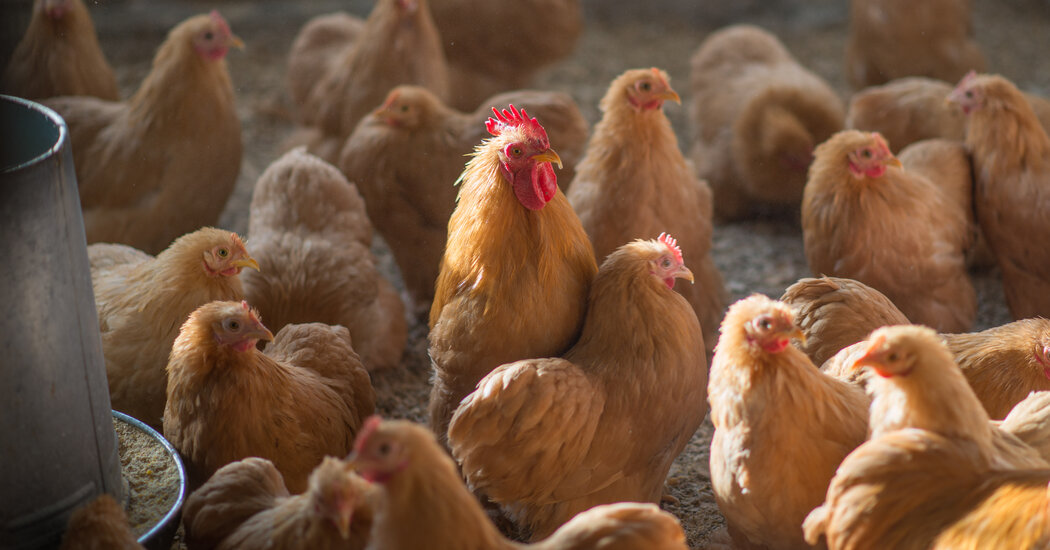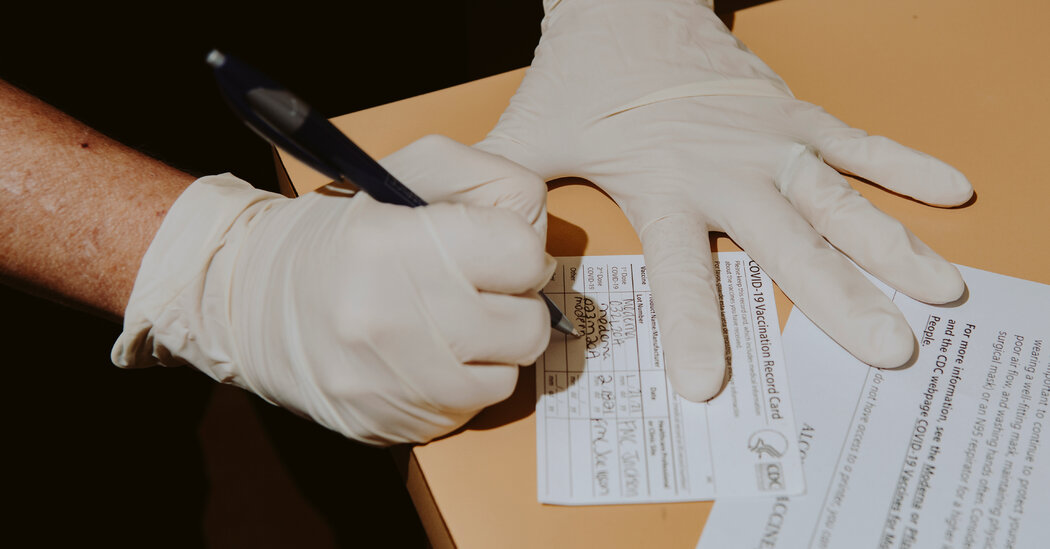3 Presumed Bird Flu Cases Reported in Colorado
The cases, which have yet to be confirmed, were identified in farmworkers culling infected birds. The risk to the public remains low, health officials said.Three workers at a poultry farm in northeast Colorado have preliminarily tested positive for bird flu, according to state health officials.The workers had been culling birds from an infected population at the farm, the Colorado Department of Public Health and Environment said on Friday. All three workers had direct contact with infected birds and were experiencing mild symptoms, including conjunctivitis and “common respiratory infection symptoms,” the department said.The results are preliminary, and the tests have been sent to the Centers for Disease Control and Prevention for confirmation, the C.D.C. said.So far, four farmworkers in the United States have been infected with the virus, called H5N1, which is tied to a continuing outbreak among dairy cattle in several states.One case has been reported in Colorado, another in Texas and two more in Michigan, according to the C.D.C. All of those cases involved direct exposure to dairy cows, according to the state and federal health authorities, and officials have said that there is no evidence that the H5N1 virus spreads easily among humans.The risk to the public remains low, the C.D.C. said, but the agency added that it had sent a team to Colorado at the state’s request to help investigate.The C.D.C. said that it would look into whether workers were wearing personal protective equipment. Farmworkers are advised but not required to wear such equipment, including masks, safety goggles and gloves.“These preliminary results again underscore the risk of exposure to infected animals,” the C.D.C. said of the three new cases in Colorado. “There are no signs of unexpected increases in flu activity otherwise in Colorado, or in other states affected by H5 bird flu outbreaks in cows and poultry.”Avian influenza refers to a group of flu viruses primarily adapted to birds. The virus infecting farmworkers, H5N1, was first identified in 1996 in China and reported in people in 1997 in Hong Kong. A new form of H5N1, which surfaced in Europe in 2020, has rapidly spread around the world, and an outbreak in the United States has affected more than 99 million birds.The outbreak has been spreading among dairy farms since at least March, and 152 dairy herds in 12 states have tested positive for the virus. Scientists are researching how the virus is being transmitted through cows.The virus has also spread to a wide array of animals, including marine mammals like seals and bottlenose dolphins, skunks, squirrels and even domestic cats.
Read more →

